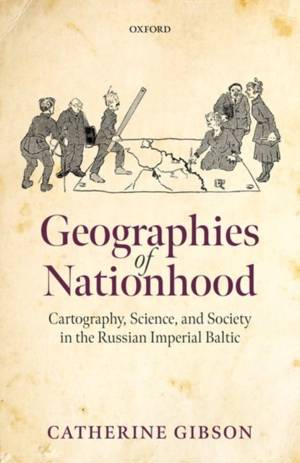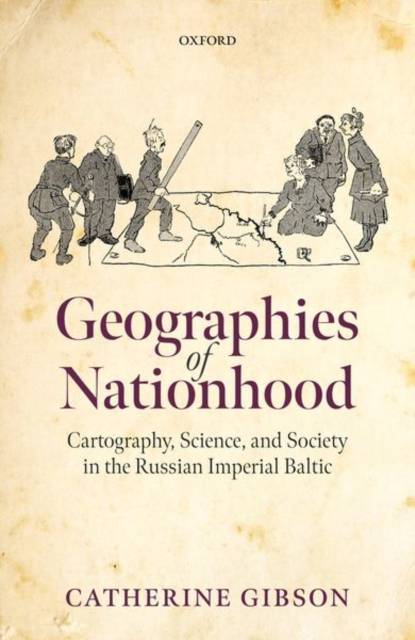
- Afhalen na 1 uur in een winkel met voorraad
- Gratis thuislevering in België vanaf € 30
- Ruim aanbod met 7 miljoen producten
- Afhalen na 1 uur in een winkel met voorraad
- Gratis thuislevering in België vanaf € 30
- Ruim aanbod met 7 miljoen producten
Zoeken
Geographies of Nationhood
Cartography, Science, and Society in the Russian Imperial Baltic
Catherine Gibson
€ 185,45
+ 370 punten
Omschrijving
Geographies of Nationhood examines the meteoric rise of ethnographic mapmaking in the nineteenth and early twentieth centuries as a form of visual and material culture that gave expression to territorialised visions of nationhood. In the Russian Empire's Baltic provinces, the development of ethnographic cartography, as part of the broader field of statistical data visualisation, progressively became a tool that lent legitimacy and an experiential dimension to nationalist arguments, as well as a wide range of alternative spatial configurations that rendered the inhabitants of the Baltic as part of local, imperial, and global geographies. Catherine Gibson argues that map production and the spread of cartographic literacy as a mass phenomenon in Baltic society transformed how people made sense of linguistic, ethnic, and religious similarities and differences by imbuing them with an alleged scientific objectivity that was later used to determine the political structuring of the Baltic region and beyond. Geographies of Nationhood treads new ground by expanding the focus beyond elites to include a diverse range of mapmakers, such as local bureaucrats, commercial enterprises, clergymen, family members, teachers, and landowners. It shifts the focus from imperial learned and military institutions to examine the proliferation of mapmaking across diverse sites in the Empire, including the provincial administration, local learned societies, private homes, and schools. Understanding ethnographic maps in the social context of their production, circulation, consumption, and reception is crucial for assessing their impact as powerful shapers of popular geographical conceptions of nationhood, state-building, and border-drawing.
Specificaties
Betrokkenen
- Auteur(s):
- Uitgeverij:
Inhoud
- Aantal bladzijden:
- 288
- Taal:
- Engels
- Reeks:
Eigenschappen
- Productcode (EAN):
- 9780192844323
- Verschijningsdatum:
- 30/06/2022
- Uitvoering:
- Hardcover
- Formaat:
- Genaaid
- Afmetingen:
- 162 mm x 240 mm
- Gewicht:
- 712 g

Alleen bij Standaard Boekhandel
+ 370 punten op je klantenkaart van Standaard Boekhandel
Beoordelingen
We publiceren alleen reviews die voldoen aan de voorwaarden voor reviews. Bekijk onze voorwaarden voor reviews.








